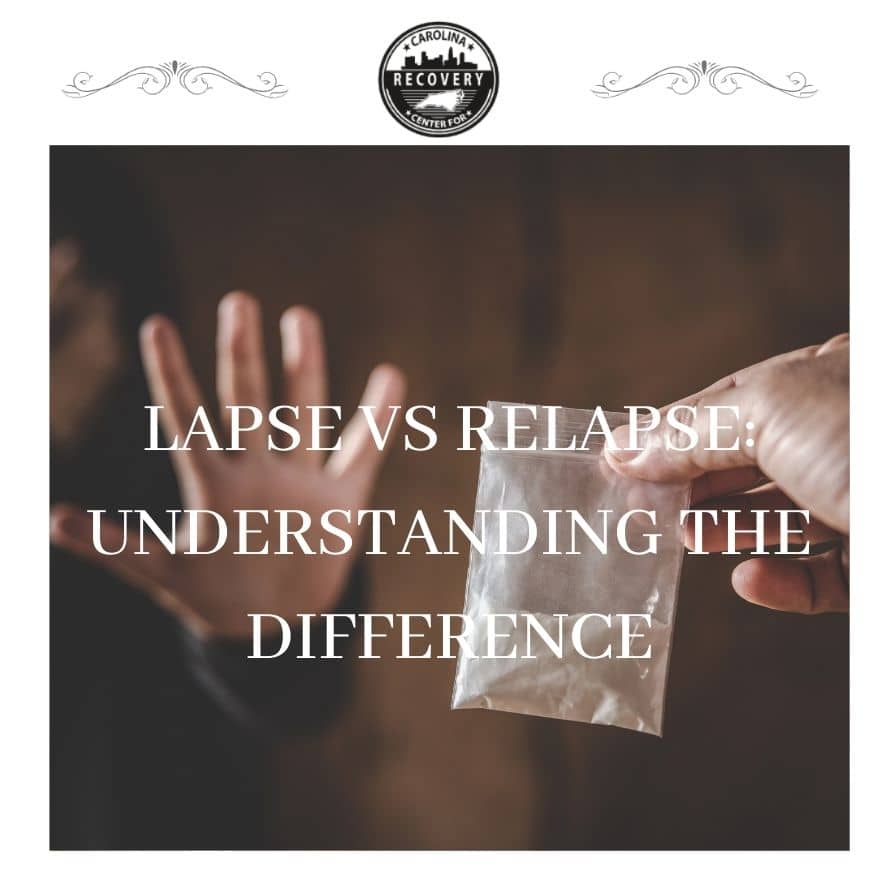Lapse vs Relapse: Understanding the Difference

Medically Verified: 2/1/24
Medical Reviewer
Chief Editor

All of the information on this page has been reviewed and verified by a certified addiction professional.
Addiction is a chronic and progressive disease, which means it can worsen and continuously affect you throughout your life. While addiction treatment can help you learn to manage your addiction, you have to stick to your recovery maintenance techniques to remain sober. If you neglect to do so, you could relapse on drugs or alcohol.
According to the National Institute on Drug Abuse, the addiction relapse rate is between 40 to 60%.[1]
While a relapse is a return to substance abuse and addictive behaviors after a period of abstinence, some people only experience a lapse, which is a one-tip return to drug use. Understanding the difference between a relapse and a lapse can help you determine what kind of action you should take to get back on track.
What is a Relapse?
The simple definition of relapse is abusing drugs or alcohol after you are sober for some time. However, if you struggle with addiction you know that nothing is that simple.
Addiction relapse is usually characterized by returning to your addictive behaviors for an extended amount of time. This means that you are abusing drugs repeatedly after experiencing some form of abstinence. Relapses also involve addictive behaviors, such as social isolation, changes in sleep patterns, and priority shifts.
Additionally, relapses occur in three stages: emotional, mental, and physical. Emotional and mental relapses are characterized by neglecting your emotional needs, failing to reach out for help, and romanticizing or planning to use alcohol or drugs. After you experience the emotional and mental stages of relapse, you will move onto the physical stage where you actually begin abusing substances once again.
What is a Lapse?
While a relapse is abusing drugs for an extended time after experiencing sobriety, a lapse is a little bit different. A lapse, also known as a “slip,” can be described as a brief slip back into your addictive behaviors. In other words, if you use a drug or drink alcohol one time and then return to your sobriety, you have experienced a lapse instead of a full-blown relapse.
It is important to note that lapses can turn into relapse if you do not take the proper steps to return to sobriety. For example, if you do not reach out for help, take accountability, and double down on your recovery maintenance techniques, you could enter a true relapse. As a result, it is vital to be educated on how to prevent drug and alcohol relapse.
How to Prevent Yourself From Relapsing After a Lapse
If you experience a lapse, you must be aware of how to prevent it from turning into a relapse. This can save you from experiencing a significant setback. Additionally, relapsing can be dangerous, as you might attempt to use the same amount of a substance that you used to during your addiction, leading to a life-threatening overdose.
If you experience a lapse, ask yourself the following questions:
- Where were you?
- How were you feeling?
- Who were you with?
- What were you doing?
- What caused your urges to use substances?
- What could you have done differently?
Once you know who you were with, what you were doing, and what feelings preceded your lapse, you can begin to understand why it happened. This will allow you to figure out what you can do in the future to prevent yourself from experiencing another lapse.
Additionally, you should reach out to your sober support when you experience a lapse. Letting other people know about your lapse allows you to take accountability and receive the emotional support you need to get back on track. Typically, lapses do not require professional treatment as long as they do not turn into a relapse.
What to Do When You Experience a Relapse
If you experience a relapse, the first thing you should do is have compassion for yourself. Beating yourself up over a relapse will only make your substance abuse worse, as guilt and shame feed an addiction. Once you have forgiven yourself, it’s time to reach out for help.
Relapses can be dangerous. You no longer have the tolerance you used to have, which could cause you to experience a fatal overdose. As a result, you must go back to rehab as soon as possible after a relapse.
You and your sponsor or therapist can work together to determine what level of treatment you need. Sometimes, relapses can be treated on an outpatient basis. However, if your relapse was severe you might want to consider attending an inpatient rehab program. These programs can provide you with the time and treatments you need to build a strong foundation of sobriety before you return to independent living.
Finding Help for an Addiction Relapse
If you or a loved one have experienced a relapse, you should consider going back to an inpatient treatment facility. Relapses indicate that you do not have the tools you need to remain sober long-term. Returning to an inpatient rehab can ensure that you develop the skills you need to successfully manage your recovery and prevent yourself from relapsing in the future.
At Carolina Center for Recovery, we help patients heal from the root causes of their addiction, identify triggers and learn how to cope with them, and create relapse prevention plans that really work.
To learn more about our addiction treatment program for individuals who have relapsed, contact Carolina Center for Recovery today.
References:

